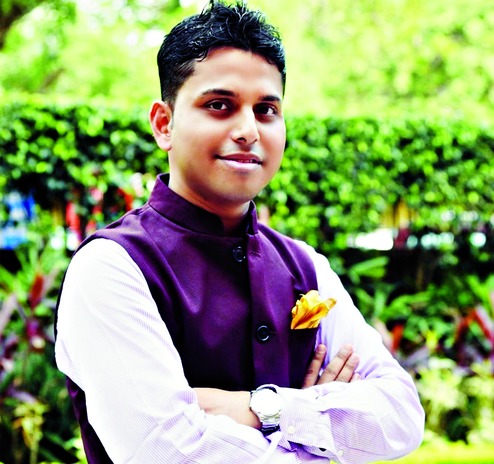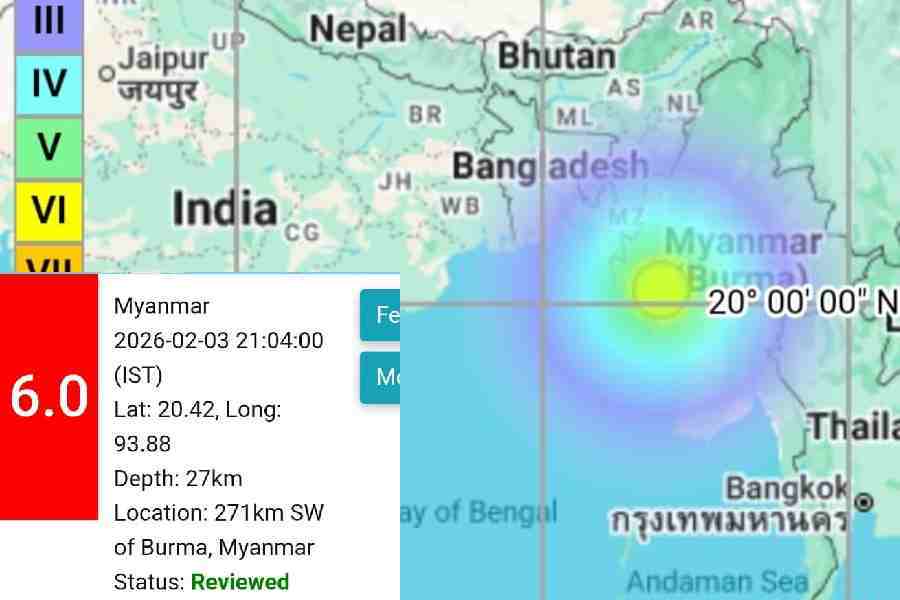

Balasore: Ancient Indian texts describe the banyan tree as a refuge for hermits and sages. Millennia later, a vat vrikshya has spread its roots to allow 2,000-plus women from tribal communities become self-sufficient and have a better life.
Vikash Das's social enterprise, Vat Vrikshya (Sanskrit for banyan tree), has built a network of nearly 2,300 women across four states of Odisha, Jharkhand, Chhattisgarh and Bengal. The organisation has not only changed their lives, but also developed a sustainable business model to give them financial independence.
The initiative, however, stemmed from an incident that took place during the Pujas in 2013. At that time, Das, 28, used to work with IBM. During the festivities, he had visited his hometown in Balasore and an incident changed his life forever.
He saw Sukima Majhi, a shabbily-dressed woman from the tribal community, being dragged out of the area for being a "lowborn". Having developed a worldview in tune with the times, he could not cope with the notion that someone would not be allowed to take part in a festival that is meant to bring communities together.
The incident deeply moved Das, and by 2014, he quit his job and set up Vat Vrikshya to help women from the marginalised communities become "agents of their own change".
"We provide women with vocational training, soft loans, expert advice and market linkage to supplement their income. We have linked over 200 tribal hamlets that are then connected with larger towns, cities, and government institutions. This allows them to sell their wares directly in fairs and markets - and especially bypass the exploitative middlemen - to gain better profits," Das said.
The organisation follows a four-pronged approach to rural development - needs assessment, networking and partnerships, education and marketing strategy as well as transparency and involvement. However, despite his intentions, Das admits that getting the women on board was never easy. "Initially, the men folk did not allow us to interact with the women members of their families. It was natural, for they had been cheated by middlemen for decades and, therefore, developed a mistrust for outsiders," he said.
Das's friends were also sceptical about the project, but he remained confident about making things fall in place. Das had even spent weeks at a remote tribal village to understand the villagers' mindset. At last, when he got the villagers on his side by convincing them about his initiative, he became confident that now he could help them supplement their handicraft skills by making them entrepreneurs in their own right.
Sukima herself was among the beneficiaries. "I had no money to make ends meet, was abandoned by my family and exploited by moneylenders. But now, I live a comfortable life as Vat Vriskhya has given me a direct access to the markets. In fact, I myself have employed 26 women from my village as well," she said.
Vat Vrikshya's team of 50 personnel provides marketing, technical and organisational support required to transform crafts and allied rural industries into viable enterprises. This has allowed the tribal artisans to increase the sale of crafts by 400 per cent over 12 months by planning and conducting sales and distribution campaigns across nine Indian cities. The biggest impact, however, was to move the women away from moneylenders and link them to the banking system.
"Their banking activities went up by 70 per cent, while 78 per cent have moved away from private moneylenders," Das said. Women representatives maintain records, manage the organisation's fund and arrange weekly knowledge-sharing and training sessions. A part of the profit is used to improve health and education in villages and support the women entrepreneurs with interest-free loans.
"Encouraged by our training in business skills, a lot of women have started their own business. They have increased their family savings by 92 per cent," Das said.
"We changed their financial behaviour and impacted the lives of women and their families. After attending our programmes, the women have reported a greater sense of confidence in decision-making and interpersonal relations."
Das now plans to expand Vat Vrikshya to the northeast and Andhra Pradesh and wants to maximise product distribution through e-commerce. "We aspire to change the lives of 50,000 tribal families by 2030. We will train 35,000 rural women to start a new business," Das said.










